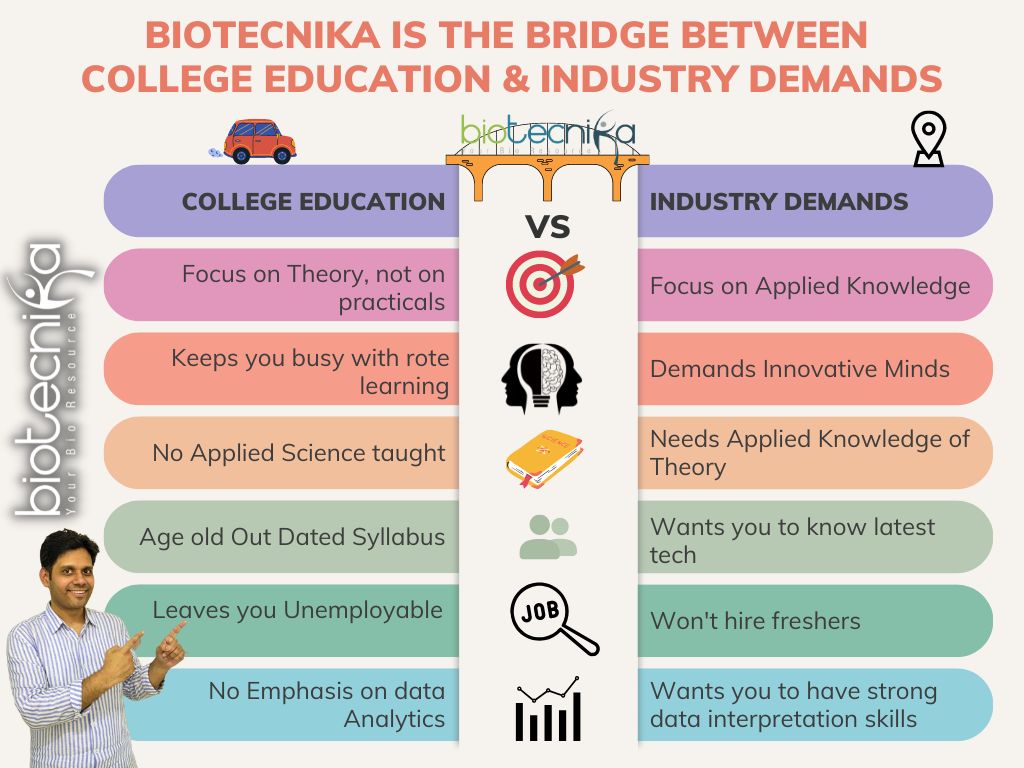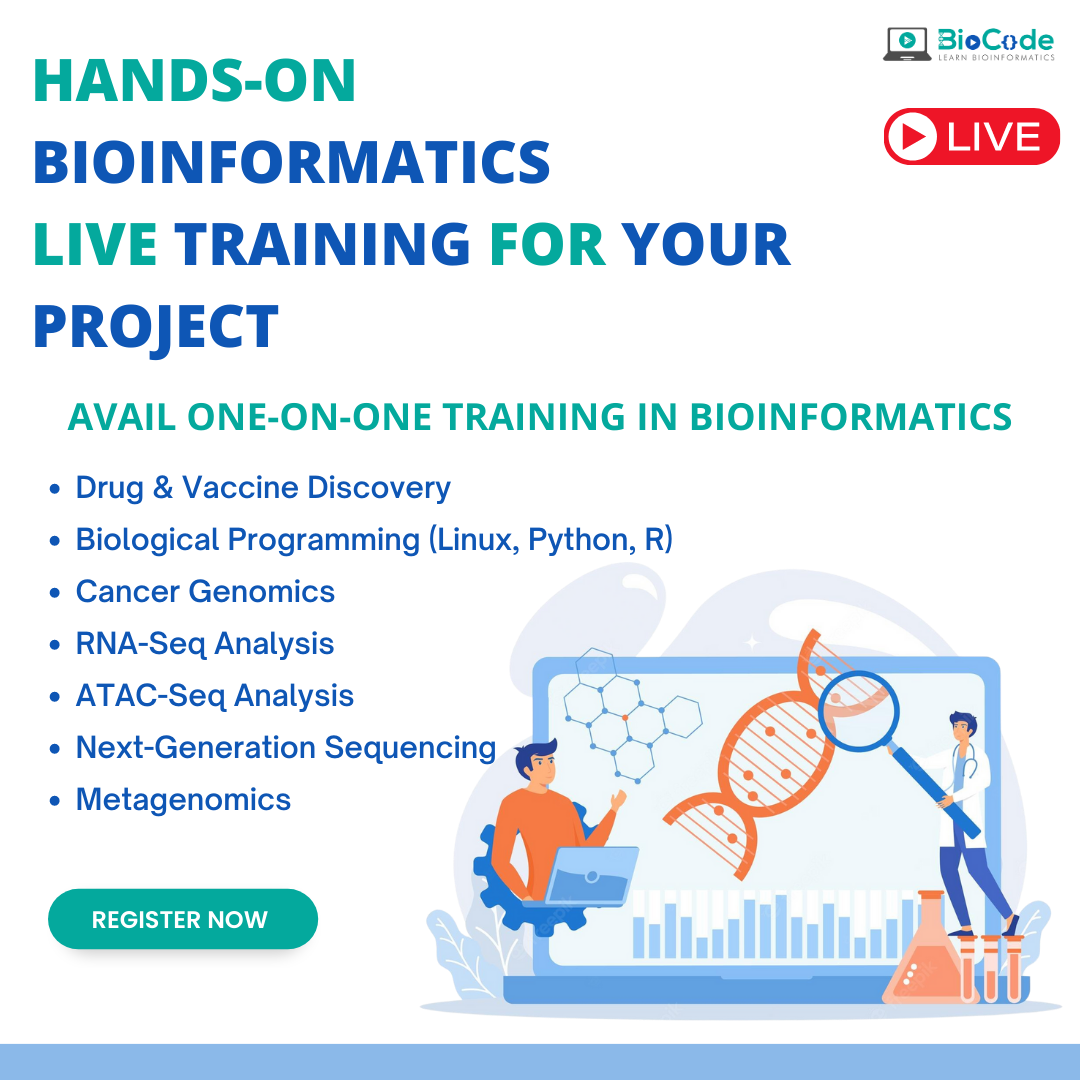An Unbiased View of Bioinformatics Tutor
An Unbiased View of Bioinformatics Tutor
Blog Article
The Greatest Guide To Bioinformatics Tutor
Table of ContentsThe Only Guide to Bioinformatics TutorAbout Bioinformatics TutorThe Single Strategy To Use For Bioinformatics TutorSome Known Details About Bioinformatics Tutor Not known Incorrect Statements About Bioinformatics Tutor
Of the total amount individuals associated with the training, 80% were trainees from public greater education organizations, while the continuing to be 20% came from personal establishments. To get a certificate of involvement, pupils were called for to go to a minimum of 90% of the total training hours. As a result of this demand, a remarkable 95% of the individuals successfully obtained their certificates, having not only satisfied the minimum presence standards yet also completed all assigned activities throughout the training.During the elevation of the COVID-19 pandemic, especially in between June and August 2020, the job team was charged with organizing specialized training in bioinformatics. This training was particularly intended at pupils from the research study group Nucleus for Research in Applied Computing at the Federal College of Pará (UFRA) The adjustment to remote knowing platforms due to the pandemic developed an opportunity to discover brand-new mentor methodologies and digital devices that improved both reach and effectiveness.
This course was designed to offer an easily accessible yet thorough review of Artificial Knowledge strategies, especially as used in bioinformatics (Bioinformatics Tutor). This virtual format enabled participation from students throughout Brazil, several of whom could not have had the possibility to go to in-person sessions.
An Unbiased View of Bioinformatics Tutor
A notable feature of this training course was its focus on hands-on knowing. Roughly 50% of the complete training hours were devoted to useful tasks where students constructed intelligent versions and applications in a series of scientific domain names, including genes, molecular biology, and environmental information analysis. Widely utilized tools and structures such as Spyder, Google Colab, Jupyter Notebooks, and Orange were incorporated into the coursework. These systems allowed students to take part in real-time data adjustment, design training, and formula testing.
Sixty of them were associated with different greater education and learning establishments in the state of Pará, while the continuing to be twenty came from establishments situated in 5 various other Brazilian states. By presenting Artificial Knowledge in a appropriate and functional context, the campaign served to bridge the space between theory and real-world application, providing students with a strong structure for future study or work in the area.
The training effort developed part of a broader academic outreach initiative called the Bioinformatics when traveling job. This task has, over the years, introduced loads of pupils to the globe of bioinformatics and computational biology. The events held under this umbrella initiative have actually occurred across multiple areas and years, as summed up in Table 1 (Listing of events, locations, years, and overall numbers of students and teachers)
Several of these teams, initially brought with each other by their participation in training events, have actually because gone websites on to generate independent scientific research study in cooperation with regional scholastic institutions. The training not only cultivated scientific thinking within the context of bioinformatics yet also stimulated joint partnerships that extended beyond the training atmosphere.
The Best Strategy To Use For Bioinformatics Tutor
The task itself was conceptualized and arranged by MB and RR, who supervised the preparation and execution of each action. Lectures were delivered by a multidisciplinary team consisting of MB, FA, EF, KP, JS, DM, SN, LP, LG, IH, rr, and ac. The same team, excluding IH and RR, also served as tutors for the functional training components. Financing for the task was given via the give 88887.200562/ 2018-00 from CAPES. The writers expand their thankfulness to everybody who added to the realization of this project, whether straight or indirectly, given that its creation.
The Federal College of Pará's Workplace of Research study (PROPESP/UFPA) likewise provided economic assistance, his response particularly for the production of the final manuscript. The authors proclaim no industrial or financial problems of interest that can have influenced the research have a peek at this website study. All analyses and viewpoints shared in this write-up are solely those of the authors and do not always mirror those of their corresponding establishments, the publisher, editors, or customers entailed in the magazine process.

The Bioinformatics Tutor PDFs
From a pedagogical viewpoint, the teaching method utilized in the training was deliberately interactive. Courses were conducted in a manner that encouraged pupil participation and discussion, exceeding memorizing memorization to discover how concepts are created, applied in day-to-day live, and evaluated in scholastic setups. The educational viewpoint focused on supporting both solid and having a hard time trainees, offering personalized assistance, and structure self-confidence with continual mentorship and perseverance.

Each team, containing approximately 36 participants, was sustained by 3 advisors-- a lot of whom were postdoctoral researchers with specific proficiency. These coaches not only assisted create the team tasks yet also facilitated their implementation, ensuring that each research question was both appropriate and suitably challenging. The objective was to supply a naturally sensible context that individuals might check out through open-ended objectives and access to curated datasets.
For added understandings right into the method and results of this project-based discovering technique, visitors are guided to S1 Text, which includes detailed summaries of the instructional framework, assessment techniques, and project themes made use of in the training sessions.
Little Known Questions About Bioinformatics Tutor.
Of the total amount participants involved in the training, 80% were pupils from public higher education and learning establishments, while the staying 20% came from private establishments. To qualify for a certificate of involvement, students were called for to attend at the very least 90% of the overall training hours. Especially, beyond the students who signed up in the training sessions, 7 seasoned instructors took part in delivering the courses, while 3 specialized research professors collaborated the general training process. Approximately 50% of the complete training hours were dedicated to practical activities where students developed smart models and applications in a variety of clinical domains, including genes, molecular biology, and ecological data analysis. The training not just cultivated scientific thinking within the context of bioinformatics however additionally sparked collective partnerships that expanded beyond the training atmosphere.
Report this page